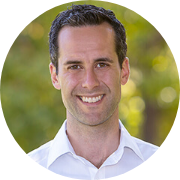RESEARCH
Open innovation in action
Free Electrons is a living example of how open innovation can accelerate the global energy transition. In a world where no single company can solve the climate challenge alone, Free Electrons brings together leading utilities from across continents to learn, experiment, and grow collectively.
Each year, partners come together to pilot with startups, sharing learnings across borders, and building a common path toward decarbonization. The result is an ecosystem where utilities, entrepreneurs, and experts test solutions that reduce emissions, digitalize infrastructure, and empower communities.
This collaborative model doesn’t just facilitate pilots, it drives transformation. Utilities evolve their internal innovation models, startups gain scale and credibility, and together they generate tangible impact.
What happens inside Free Electrons is now serving as a blueprint for how entire industries can open up, align, and act faster on the path to net-zero. Collaboration should and can spread beyond energy, across sectors and geographies.
Research insights
The energy sector is being reshaped by the Four D’s: decarbonization, digitalization, decentralization, and deregulation. While incumbents bring scale and capital, and startups bring agility and new ideas, neither can succeed alone. Free Electrons demonstrates how open innovation bridges this gap – allowing complementary actors to co-develop solutions that speed both competitiveness and climate action.
Researchers at Stanford University and the University of St. Gallen analyzed Free Electrons over several years and now recognize the program as a real-world case of organizational transformation through collaboration.
Three key findings emerged from the research:
Ecosystem learning loops
Utilities that ran repeated startup pilots and openly shared results with peers developed collective learning routines, turning isolated experiments into sector-wide capability building. These “learning loops” explain why some utilities advanced faster in integrating external innovation.
Boundary-spanning leadership
Individual managers acting between corporate structures and startup teams proved critical for success. By translating between entrepreneurial and corporate logics, these boundary spanners became catalysts for internal adoption and scaling of new solutions.
From pilots to purpose alignment
Over time, utilities reframed startup collaboration from a search for technology to a strategy for decarbonization. This shift – from open innovation for technology acquisition to open innovation for transformation – marks a significant theoretical contribution now cited in innovation-management research.
Dr. Stephen D. Comello
Stephen D. Comello is Senior Vice President for Strategic Initiatives at the EFI Foundation, Executive Director of the Nuclear Scaling Initiative, and Managing Director of the Energy Futures Finance Forum.
With over two decades of experience scaling emerging energy and environmental technologies, he specializes in policy and business model innovation for decarbonization. Previously, he served for more than a decade at Stanford Graduate School of Business, where he co-led the Rapid Decarbonization Initiative.
PhD, Stanford University; BASc & MASc, University of Toronto.
Dr. Ann-Kristin Zobel
Ann-Kristin Zobel is Associate Professor of Management at the University of St. Gallen, where she researches how firms strategically manage collaborative forms of innovation such as open innovation, innovation ecosystems, and meta-organizations. Her work explores how companies coordinate complex partnerships, absorb external knowledge, and capture value in collective innovation settings — with a particular focus on the energy transition and digital transformation.
She previously held research positions at the Haas School of Business (UC Berkeley) and ETH Zurich, and has published widely in leading management and innovation journals.
PhD, Maastricht University.
Lukas Falcke
Lukas Falcke is Assistant Professor of Digital Strategy and Innovation at the Vrije Universiteit Amsterdam (VU Amsterdam), where he researches how firms use collaborative innovation and digital technologies to drive sustainability and achieve net-zero goals. His work focuses on the intersection of digital transformation, open innovation, and grand societal challenges such as climate change.
Before joining VU Amsterdam, he was a doctoral researcher at the University of St. Gallen, a visiting researcher at Stanford Graduate School of Business, and a research fellow at ETH Zürich. He also has industry experience in digital strategy and data science with McKinsey & Company and UBS.
PhD, University of St. Gallen; MSc, ETH Zürich; BSc, RWTH Aachen.
Further reading
How firms realign to tackle the grand challenge of climate change — Journal of Product Innovation Management (2023)
Accelerating the Race to Net-Zero through Open Innovation — Oxford Handbook of Open Innovation (2024)
Succeeding in times of sustainable development goals and “net-zero” ambitions: an ecosystem strategy playbook (2024)



